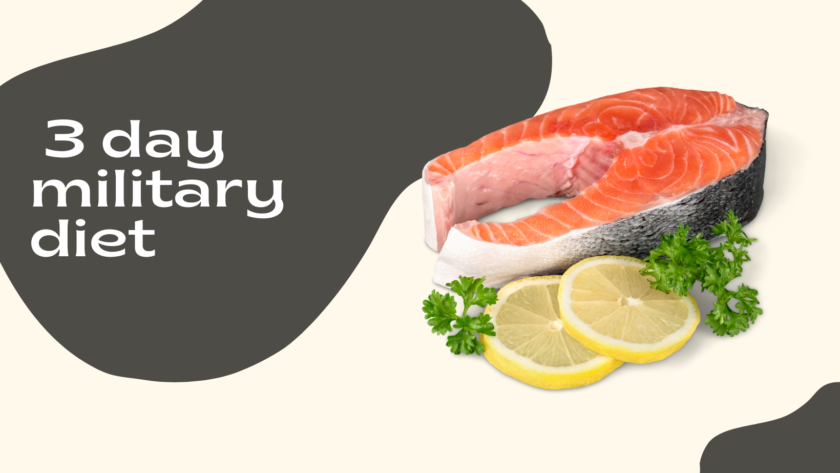Contents
- 0.1 What is the Military Diet?
- 0.2 How does the Military Diet work?
- 0.3 What foods can I eat on the Military Diet?
- 0.4 How much weight can you lose on a 3-day military diet?
- 0.5 Is military diet really effective?
- 0.6 Why is it called military diet?
- 0.7 Is the military diet safe?
- 0.8 Can I lose 10 pounds in a week on the military diet?
- 0.9 Can I modify the military diet meal plan?
- 0.10 Is the military diet recommended for everyone?
- 0.11 How to lose 10 pounds in a week military diet?
- 0.12 What can I substitute for grapefruit on the military diet?
- 1 Related posts:
Hey there, health enthusiast! You’ve come across the term ‘Military Diet’ and now you’re brimming with questions? Well, you’re in the right place! In this informative piece, we’ll delve into those frequently asked questions about the Military Diet, providing you with enlightening answers. Let’s embark on this enlightening journey together, shall we?
What is the Military Diet?
The Military Diet, despite its name, does not have any ties to the military. It’s a low-calorie diet plan that’s popular among people who want to lose weight quickly. Intriguing, isn’t it?
How does the Military Diet work?
This diet involves a 3-day meal plan, followed by 4 days off. The cycle is repeated until you reach your desired weight goal. It’s like a sprint rather than a marathon in the world of dieting!
What foods can I eat on the Military Diet?
Are you intrigued by the Military Diet and considering giving it a shot to drop those extra pounds? Or maybe you’re just curious about this trendy diet plan that’s been making waves in the fitness world? Whatever the case may be, we’ve got you covered! In this article, we’ll dig into the most frequently asked questions about the Military Diet.
How much weight can you lose on a 3-day military diet?
The 3-day military diet, also known as the 3-day diet or the army diet, is a short-term, low-calorie diet plan that claims to help individuals lose weight quickly. However, its effectiveness and safety have been a subject of debate, and there is no guarantee of how much weight you will actually lose on this diet.
The diet typically involves a strict meal plan for three consecutive days, followed by four days of less restrictive eating. During the three days, calorie intake is severely restricted, with meals usually totaling around 1,000 to 1,400 calories per day, depending on the specific version of the diet.
Is military diet really effective?
The effectiveness of the military diet is questionable. While some individuals might experience short-term weight loss due to its calorie restriction, much of it is likely water weight and glycogen depletion. The diet’s extreme nature and lack of balanced nutrition can lead to negative health consequences. Long-term success is doubtful as the diet is not sustainable and doesn’t promote healthy eating habits. A more balanced and gradual approach to weight loss is generally recommended for better results and overall well-being. Consulting a healthcare professional or registered dietitian is advisable before attempting any drastic diet changes.
Why is it called military diet?
The term “military diet” is likely a misnomer, as there’s no official connection between the diet and any military organization. The origins of the name are unclear, but it’s believed that the diet gained its name due to the strict and disciplined nature associated with military training. The diet’s structure involves a specific meal plan with strict guidelines to follow for three days, which might have led to the comparison with military discipline. However, it’s important to note that the diet is not endorsed or recommended by any official military organization. The name is more of a marketing strategy to attract attention and interest in the diet plan.
Is the military diet safe?
The extreme calorie restriction and lack of balanced nutrition in the military diet can be concerning for some individuals. Rapid weight loss can lead to negative health effects, and the diet may not provide adequate nutrients.
Can I lose 10 pounds in a week on the military diet?
The claim of losing 10 pounds in a week on the military diet is often mentioned, but it’s important to approach such claims skeptically. Such rapid weight loss is typically not recommended and can be unhealthy.
Can I modify the military diet meal plan?
Some variations of the military diet exist, but it’s important to consider the nutritional implications of any modifications. Changing the plan too much might affect its intended results.
Is the military diet recommended for everyone?
The military diet’s extreme nature and lack of balanced nutrition make it unsuitable for many people, especially those with certain medical conditions or dietary restrictions.
How to lose 10 pounds in a week military diet?
Losing 10 pounds in a week through the military diet is not recommended due to its extreme and potentially unhealthy nature. The diet’s severe calorie restriction can lead to muscle loss, nutrient deficiencies, and other health issues. Instead, focus on sustainable and balanced weight loss approaches such as consuming a balanced diet, staying hydrated, engaging in regular physical activity, and seeking guidance from a healthcare professional or registered dietitian for a safe and effective weight loss plan.
What can I substitute for grapefruit on the military diet?
If you’re looking to substitute grapefruit on the military diet due to personal preferences or allergies, you can opt for another low-calorie, nutrient-rich fruit with similar characteristics. Consider using alternatives such as:
- Oranges: Oranges are citrus fruits like grapefruits and offer similar nutritional benefits, including vitamin C and dietary fiber.
- Tangerines: Tangerines are another citrus option that can provide a tangy flavor while being lower in calories.
- Pomelo: Pomelo is a large citrus fruit that shares some flavor qualities with grapefruit and can be a suitable alternative.
- Kiwi: Kiwi is a nutrient-dense fruit rich in vitamin C and dietary fiber, providing a refreshing option.
- Berries: If you’re open to a different type of fruit, options like strawberries, blueberries, or raspberries can provide antioxidants and fiber.
Remember that while substituting grapefruit, it’s important to maintain the overall nutritional balance of the meal and stay within the calorie limits of the military diet. Always consider your individual dietary needs and preferences, and if you have any health concerns or dietary restrictions, consult a healthcare professional or registered dietitian before making substitutions.
Healthier alternatives to the military diet include adopting a balanced and sustainable approach to eating, focusing on whole foods, portion control, and regular physical activity.
Check out the following other meal plans for weight loss
You can check about Vegetarian Military Diet in article Military Diet Vegetarian
You can check about Vegan Military Diet in article Military Diet Vegan









